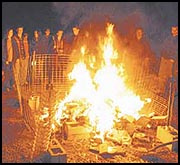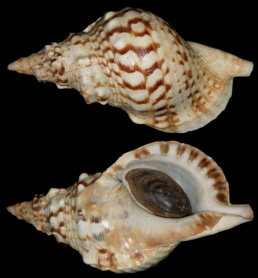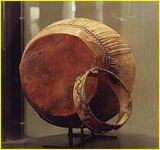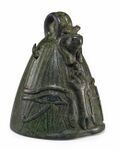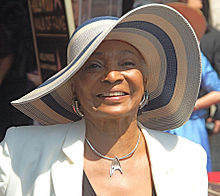West Phoenicia Music: Difference between revisions
| Line 103: | Line 103: | ||
Since 2013 Pontifex Angelika I Deo Deuotus has attempted to get trance and similar music banned as a negative attribute to West Phoenician society, much like former Pontifex were able to ban rap and heavy metal. | Since 2013 Pontifex Angelika I Deo Deuotus has attempted to get trance and similar music banned as a negative attribute to West Phoenician society, much like former Pontifex were able to ban rap and heavy metal. | ||
However, night club owners showed the government how profitable these dance genres are. | However, night club owners and festival promoters showed the government how profitable these dance genres are. | ||
While electronic dance music remains popular, the Pontifex was able to get it banned in the city-state of Agape, and also was able to implement a law to shut down any venue where drugs were found on premises during dance parties and raves and a $500,000 fine to owners. Due to this law, night clubs have creates strict search policies to ensure drugs are not found oon-premises | While electronic dance music remains popular, the Pontifex was able to get it banned in the city-state of Agape, and also was able to implement a law to shut down any venue where drugs were found on premises during dance parties and raves and a $500,000 fine to owners. Due to this law, night clubs have creates strict search policies to ensure drugs are not found oon-premises. | ||
[[File:Wphousemusic.jpg|80px|center|frame|Stay Awake, A West Phoenician electronic dance festival, held every year in Titania.m that last 5 days.]] | |||
==Award Shows== | ==Award Shows== | ||
Revision as of 22:41, 12 May 2020
The Empire of West Phoenicia is passionate about music and literature. Both have been a part of their culture since the country came into existence.
Jazz, Southern Gospel, Bubble-Gum Pop, Classic Rock and Country are popular music genres.
Opera is a favourite among the upper classes. West Phoenicia boasts some of the most opulent Opera houses.
Rap and Heavy metal is banned in the Holy city-state of Agape by orders of Pontifex Angelika I who has deemed it the Devils music.
Since 2010 numerous city-states have followed suit with many cities and towns undergoing yearly burnings of rap music and heavy metal rock that has been found especially amongst the youth.
There are 10,000 West Phoenician Radio Stations; it includes 2500 AM stations, 4,000 commercial FM stations and 1500 educational/non-profit FM stations
The Empire of West Phoenicia has entered their talented music artists in international competitions around the world such as the World Vision Song Contests and the World Hit Festivals.
West Phoenicia hosts a number of their own Awards Nights and Galas to reward and promote talent in West Phoenicia.
History
Archaeologists predate music being a form of entertainment in the region for well over 4000-year-old. Evidence discovered in Mermania cave artefacts, show couch shells as instruments and cave painting depicting music as a form of celebration.
As other ethnic groups migrated to the region other musical instruments were slowly introduced especially by the Babelite people.
The Babelite tribes introduced a host of musical instruments that were primarily used for wedding and funeral rites. Instruments such as drums, pan flutes, tambourines and bells became quite common at these events.
The priestly class used instruments such as the sistrum to communicate with the deities from pre-Greater Phoenicia times. a tradition that still exists to present day.
When the region unified under the Greater Phoenicia Empire in 1130 music continued to feature in wedding, funeral and religious rites.
In funeral rites, instruments such as tambourine and finger cymbals could be heard as women would perform the mourning lament.
At the Greater Phoenicia Empire royal court, visiting minstrels and bards were invited to perform. They introduced new music and instruments to the region. In return, Greater Phoenicians copied than produced their own music and instruments that they used to entertain the peasant masses and visiting dignitaries.
When West Phoenicia gained independence in 1586, they continued with the music that had influenced them. Artists and musicians also took the opportunity to create new musical influences.
The War of Greater Phoenicia Aggression (1592 to 1596) was a time of misery for all involved. However many citizens found solace in music.
General Naphtali Harrison and his wife Prudence was instrumental in the creation of Pro-West Phoenician patriotic songs. Freedom, West Phoenicia, Freedom, We won't Surrender and By the West Phoenician winds are three popular patriotic songs that are still sung by the modern-day West Phoenician military.
Wst Phoenicia is unique compared to many countries, the 53 city-states that make up the country each have their own cultural identity. Music, art, dance and costume play big parts in each city-state. Some styles have remained the same since the founding of the city-state, while others have progressed and changed with the times.
Folk music has played an important part in many city-states since 1586. Many oral traditions originally handed down, were transformed into songs.
Traditionally folk music was more of a working-class to peasant style of music but has since involved from the 1950 and has become popular among anti-war citizens and those seeking an alternative to commercial music.
Country music also gained a foothold from the late 1700s, especially in the eastern and southern city-states where it became extremely popular and often competed again folk music in national competitions.
Lyres and harps, introduced by travelling minstrel during the Great Phoenicia Empire dominance were a favourite of the West Phoenician nobility classes.
The current royal family has a personal harpist among their paid servants as well as a Master of Music.
Wealthy citizens looking to emulate the royal family also hired harpists and pianists as members of their households to play during parties.
Classical and operatic music flourished in the nobility circles. In 1670 wealthy investor, countess and friend to Queen Bernice Bush III; Diana Towers; 1st Countess of Tennessee Meadow used her own money to build the first opera house in West Phoenicia.
The building took two years to complete. By this time Queen Bernice Bush III had died from complications of a previous birth. To honour her friend the Opera house was named in her honour. The opera house was popular among the aristocracy, who filled the house every Saturday night to listen to international and eventually national singers.
West Phoenicia is now home to 20 opera houses, where the style of music is still extremely popular.
As a God-fearing country, soul and gospel appeared throughout West Phoenicia as early as the 1700s. Each denomination had its own version of gospel, that like the pagans they used to praise God. Churches traditional started out with hymns, and as time went on both Catholic and Protestant denominations included soul and gospel sung by their choirs.
In 1900 when Christian denominations merged to form the True Path faith new music styles were introduced. During the 1970s Christian rock began to take hold along with full church bands and choirs.
Those denominations that chose not to merge, continued on the more traditional route.
During the 18th to 20th century, an influx of new immigrants continued to bring new styles of music. Their arrival, blended with past trends saw the growth of Jazz, Rhythm and blues, disco, rock and pop, which began to dominate the airwaves and concert halls.
The establishment of Jazz clubs popped up in a number of city-state capital cities.
After the 5th West Phoenician civil war ended in 2010,a lot of the culture that was suppressed under Queen Jezebel Bush was lifted.
Electronic dance music, house music, trance,dance-pop and nu-disco have all emerged onto the West Phoenician night club scene, it is extremely popular among the youth and early twenties to thirties crowds.
Since 2013 Pontifex Angelika I Deo Deuotus has attempted to get trance and similar music banned as a negative attribute to West Phoenician society, much like former Pontifex were able to ban rap and heavy metal.
However, night club owners and festival promoters showed the government how profitable these dance genres are. While electronic dance music remains popular, the Pontifex was able to get it banned in the city-state of Agape, and also was able to implement a law to shut down any venue where drugs were found on premises during dance parties and raves and a $500,000 fine to owners. Due to this law, night clubs have creates strict search policies to ensure drugs are not found oon-premises.
Award Shows
West Phoenicia hosts a number of Music award shows to reward the talents of its artists, they include;
- West Phoenicia Country Music Awards
- West Phoenicia Pop Awards
- Silver Cloud Opera Awards
- Music for the Soul Awards
- Indie Music Awards
- West Phoenicia Rock n Roll Awards
- The Siren Awards
- Goddess Meret Annual Music Festival
Contests
Over the years West Phoenicia has entered a number of International Music Contests.
World vision Song Contest and World Hits Festival are the two more popular contests West Phoenicia has entered.
World Vision Song Contests
WorldVision Song Contest #49
The Worldvision Song Contest #49th edition was held in Electrum. The Laxettes won the nomination to sing at this prestigious music event in the debut entry for West Phoenicia. The girl group sung their original song "Please Don't Take my Cigarettes" Out of 28 nations. The Laxettes finished in 26th place.
WorldVision Song Contest #50
The Empire of West Phoenicia officially entered the WorldVision Song Contest #50, that was held in Kaisen, Kalosia. Aquarius won the nomination to sing at the competition with their song Segregation:( Give me a reason to love you) Aquarius placed 27th out of 31 entries.
World Hit Festivals
World Hit Festival #26
West Phoenician male solo artist Hero registered for the 26th edition of the World Hit Festival when he won the national competition to represent West Phoenicia. World Hit Festival #26 was held in Monterra, Kalosia where he sung the song Fame or Me? West Phoenicia finished with a final rank of 7 out of 9.
World Hit Festival #27
West Phoenician Lady Gaia won selection to represent the nation in the 27th Edition of The World Hit Festival. The competiton took place in Kyvivre, Britonisea. Lady Gaia sung a beautiful folk song; Beloved Mother Earth. West Phoenicia finished with a placing of 12th.
World Hit Festival #28
West Phoenician popular girl group Bubblegum was choosen to represent the nation at the World Hit Festival #28, which was held in Vodiznad, Izmedu. The song they entered for the competition was Bubblegum Kisses. The results were dismal, placing 2nd last and forcing West Phoenicia to pull out of future competition due to accusations of vote rigging and favoritism.
West Phoenician musicians
West Phoenicia has an abundance of music talent across the Empire. Some well known musical artists include;
| Music Artist | Genre | City-State Origin |
|---|---|---|
| Holly Fartoni | Country | New Dixie |
| The Insects | 4 man rock n roll | New Tudor |
| Dixie Goodrem | Pop | Jackson |
| Jade Westwood | Opera | Upper West Phoenicia |
| Hero | Pop & Ballads | Jackson |
| Gene Campbell | Country and Western | Upper West Phoenicia |
| Magdalene | Pop | Olympia Hills |
| The Laxettes | Doo Wop & Pop | Fort Blackfoot |
| Aquarius | Pop | Lower West Phoenicia |
| Lady Gaia | Folk | Africana Territory |
| The Westexx Trio | Folk | St Mary's |
| Blaine Daniels | Folk | Nova Texas |
| 4 Privates | Pop, R&B, Patriot Ballads | Jackson |
| Bubblegum | Pop | Neo Australis |
| The Gidgettes | Surfer Rock & Pop | Deception Bay |
| Duncan Whitehall | Pop Rock, Swing, Jazz | Nova Texas |
| The Watermelons | Kids musical group, Pop | Upper West Phoenicia |
| The Rainbow Teddybears | Kids musical group, Pop | Jackson |
| Maralena Devine | Lounge Singer, Ballads, Jazz | Brigham Territory |
| Josef Puglia | Opera | New Tudor |
| Madame Sofia Le'Oranga | Opera | East Eden |
West Phoenician Music Deities
The West Phoenician Pantheon of deities can be quite extensive. The nation has a large percentage of citizens who follow the polytheist pantheon, paying homage to a variety of gods, goddesses and animal deities who overlook their daily life.
Music deities are no exception, from the prehistoric times in the region, the priestly class has seen music as a form of communication with the deities. They also pay thanks to those deities who inspired music to flourish in the region.
Pan
Pan is one of the earliest music deities found in West Phoenician folklore. His origin is traced back to Greek colonies that popped up in pre-West Phoenician times. Pan is responsible for rustic music and nature. Musician often say a prayer to Pan before a performance to receive his blessing.
Euterpe
Euterpe is a Greek muse of lyric poetry. She was introduced to the region by travelling ministels, bards and poets who were invited to perform in the royal court of the Imperium royal family in Greater Phoenicia in 1145 during the reign of Queen Delphina Imperium
Queen Dephina Imperium incorporated the muse as a minor goddess in the pantheon as part of a Greco-Phoenician syncretism Euterpe was given authority over wind instruments, lyrical music and poetry.
Statues of Euterpe are a common sight in outdoor music establishments and concerts. The Imperial palace in Melbourne-Haven, has a garden of Euterpe to honour the goddess. The garden has featured in a number of royal weddings and galas.

